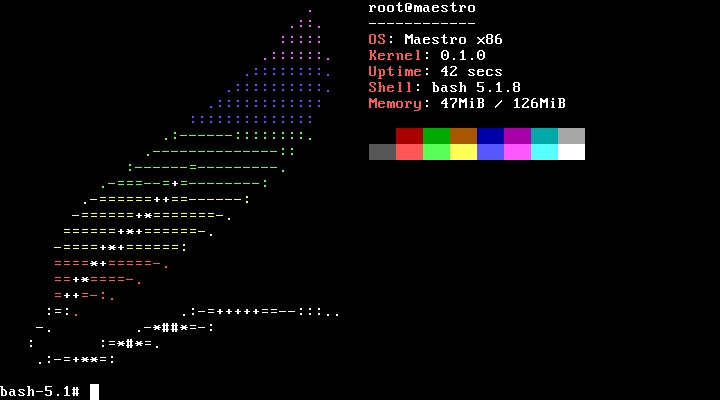Enter Maestro, a unix-like monolithic kernel that aims to be compatible with Linux in order to ensure wide compatibility. Interestingly, it is written in Rust. It includes Solfége, a boot system and daemon manager, maestro-utils, which is a collection of system utility commands, and blimp, a package manager. According to Luc, it’s creator, the following third-party software has been tested and is working on the OS: musl (C standard library), bash, Some GNU coreutils commands such as ls, cat, mkdir, rm, rmdir, uname, whoami, etc… neofetch (a patched version, since the original neofetch does not know about the OS). If you want to test it out, fire up a VM with at least 1 GB of ram.



MIT is basically “do anything you want with it, I don’t care”. I means some company can reuse it in its closed source projects freely and without notice or royalty.
There are plenty of other licenses that require you to also go open source if you include and/or modify it. Basically “you can use ot however you want, but if you modify it, it has to be open source as well”